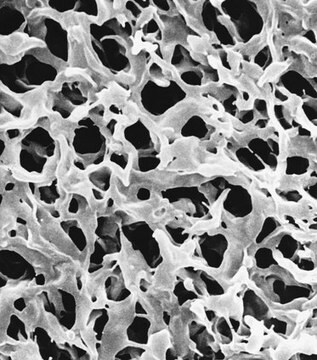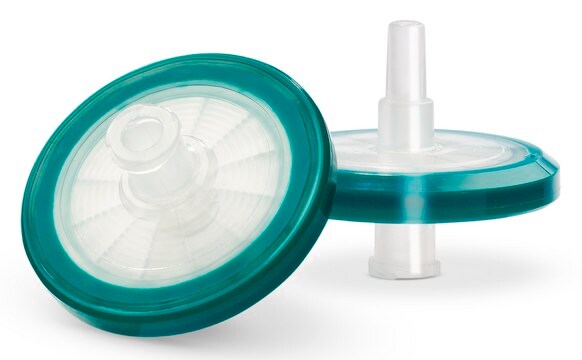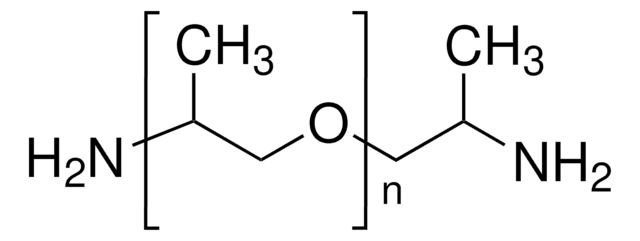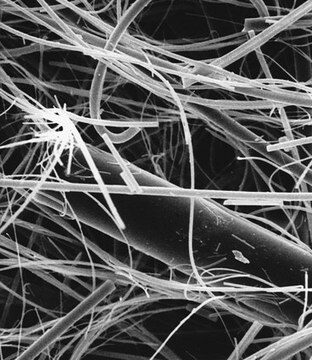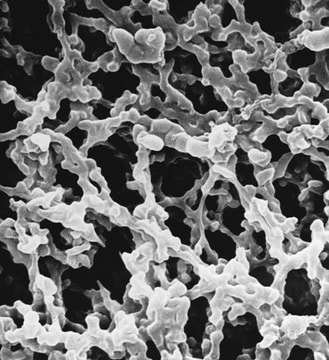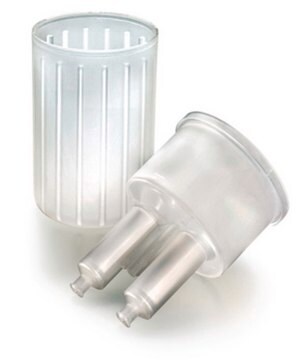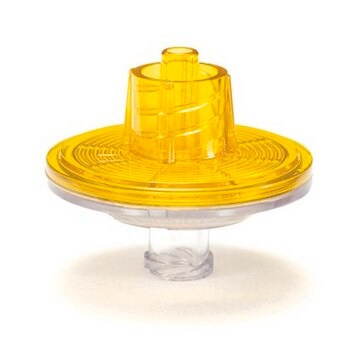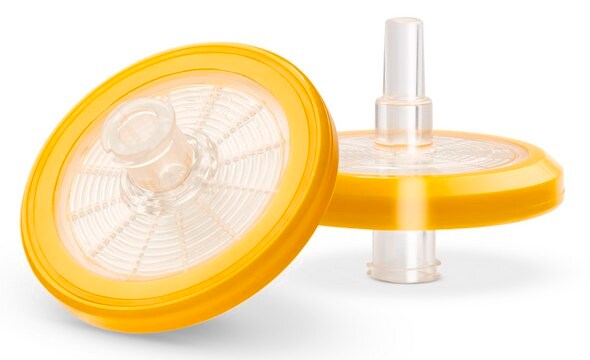GVWP2932A
Durapore® Screen Filter
pore size 0.22 μm, PVDF membrane, hydrophilic, filter diam. 293 mm
Synonym(s):
Durapore® Membrane, PVDF, Hydrophilic, 0.22 μm, 293 mm, white, plain
About This Item
Recommended Products
material
PVDF membrane
plain filter
white filter
description
Sterilizing filtration of biological solutions
sterility
sterile; γ-irradiated
product line
Durapore®
feature
hydrophilic
manufacturer/tradename
Durapore®
parameter
6.7 mL/min-cm2 water flow rate
85 °C max. temp.
filter diam.
293 mm
gravimetric extractables
0.5%
refractive index
n/D 1.42
matrix
Durapore®
pore size
0.22 μm pore size
input
sample type liquid
bubble point
≥3.45 bar, air with water at 23 °C
shipped in
ambient
General description
Other Notes
- Organism Retention: Microorganism
- Mode of Action: Filtration (size exclusion)
- Application: BioProcessing
- Intended Use: Reduction or removal of microorganism/bioburden
- Instructions for Use: Please refer Wetting Instructions for Filter Units with Durapore® Membrane user guide
- Storage Statement: Store in dry location
- Disposal Statement: Dispose of in accordance with applicable federal, state and local regulations.
Legal Information
Storage Class Code
11 - Combustible Solids
WGK
WGK 3
Certificates of Analysis (COA)
Search for Certificates of Analysis (COA) by entering the products Lot/Batch Number. Lot and Batch Numbers can be found on a product’s label following the words ‘Lot’ or ‘Batch’.
Already Own This Product?
Find documentation for the products that you have recently purchased in the Document Library.
Customers Also Viewed
Our team of scientists has experience in all areas of research including Life Science, Material Science, Chemical Synthesis, Chromatography, Analytical and many others.
Contact Technical Service